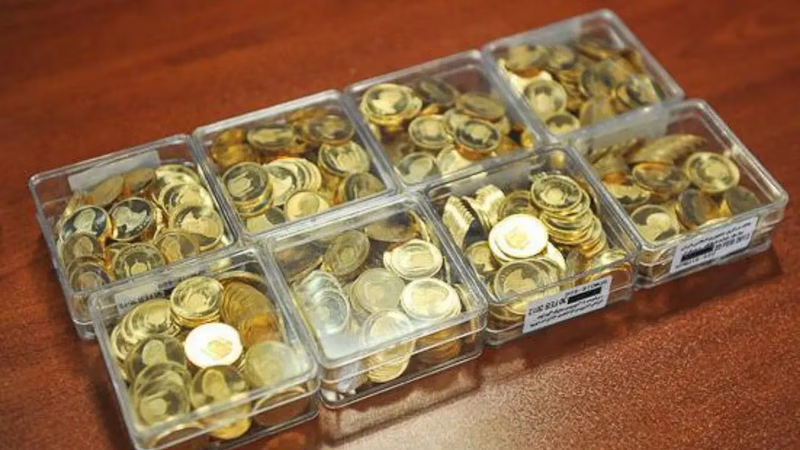
Gold trading hubs in West Asia: Dubai"s Gold Souk and more. "
West Asia (Middle East) has been a center for gold trading for centuries. The region's strategic location between Europe, Asia, and Africa made it a hub for trade routes, facilitating the exchange of goods, including gold. Historical empires such as the Persian Empire, the Arab Caliphates, and the Ottoman Empire played a crucial role in the development of the gold market in West Asia. Gold holds deep cultural and religious significance in West Asian societies. It is often associated with wealth, status, and beauty. Gold jewelry, coins, and ornaments are commonly used for personal adornment, as well as for ceremonial and religious purposes. Weddings and other celebrations often involve the exchange of gold gifts.
Several cities in West Asia serve as major gold trading hubs. Dubai in the United Arab Emirates is a prominent center for gold trading, with its Gold Souk and Dubai Gold and Commodities Exchange (DGCX). Other notable gold trading centers include Istanbul in Turkey and Manama in Bahrain. These hubs facilitate both domestic and international gold trading, attracting buyers and sellers from around the world. West Asia has developed robust investment and financial infrastructure to support gold trading and investment. Bullion banks, jewelry retailers, and gold refineries operate in the region. Gold ETFs (Exchange-Traded Funds) and gold futures contracts are also available, providing investment opportunities for individuals and institutions.
Gold is a chemical element with the symbol Au and atomic number 79 and is one of the elements with high atomic number that exists in nature. Gold is pure, a shiny metal, reddish yellow, dense, soft, malleable and flexible. Gold is chemically a transition metal and a member of group 11. It is one of the least reactive chemical elements that is solid under normal conditions. Gold metal, often in the form of a free element in the form of metal fragments or grains, is present in rocks, veins, and alluvial deposits, and is present in a series of solid solutions with the element silver (electrum). It also alloys naturally with copper and palladium.
Middle Eastern central banks hold significant gold reserves as part of their foreign exchange reserves. These reserves serve as a means to diversify their holdings and provide stability to their currencies. The United Arab Emirates, Saudi Arabia, and Turkey are among the countries in the region with substantial gold reserves. Unlike silver which can degrade in the air over time, gold will not rust or taint. Gold, in particular, is extremely difficult to corrode. Only very strong acids such as nitric acid and hydrochloric acid can cause gold to become damaged. This is why wedding bands are traditionally made of gold, as they are guaranteed to stand the test of time. Gold is a noble metal. Noble metals are a group of metals which do not corrode over time under normal conditions.
West Asia is one of the largest consumers of gold globally. The region's population has a strong affinity for gold, and it is considered a store of value and a form of investment. Gold is widely purchased for personal use, including jewelry and gold bars. Demand for gold in West Asia tends to increase during festive seasons, such as Eid in Islamic countries or Diwali in India. West Asia is renowned for its gold jewelry craftsmanship. Skilled artisans create intricate and unique designs using various techniques such as filigree, engraving, and gemstone setting. Gold souks, or traditional markets, can be found in many cities across the region, offering a wide range of gold jewelry and ornaments.
-
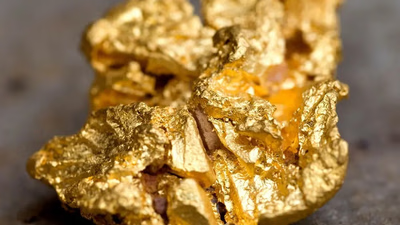
Understanding the intricacies of buying and selling jewelry and gold is crucial for successful transactions. Key factors include recognizing different types of jewelry, such as fine, fashion, and antique pieces, as well as understanding gold"s purity, weight, craftsmanship, and market trends. Authenticity verification is essential; look for hallmarks indicating metal purity and request certificates for gemstones from reputable labs. Assess the condition of items carefully, considering aspects like damage and overall craftsmanship. Negotiation skills are vital; clearly communicate expectations and document transaction details to prevent disputes. Security during transactions should not be overlooked—conduct them in reputable locations and consider secure payment methods. Familiarity with legal regulations regarding jewelry sales in your area is also important. In the Middle East, 18-carat gold is preferred due to its balance of quality and value.
Buyers should be aware of the emotional significance of jewelry while also staying informed about market prices to ensure fair transactions. Engaging with trustworthy sellers or buyers can enhance the experience and lead to better deals. "
-
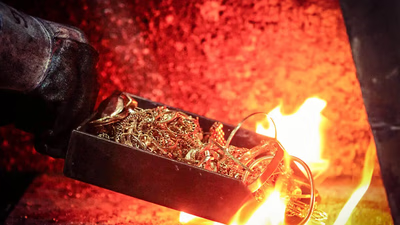
Western Asia"s jewelry making is characterized by a blend of traditional craftsmanship and modern techniques. Each region showcases unique styles, with methods like filigree and engraving being prevalent. Jewelry serves not only as adornment but also reflects cultural identity and social status, playing a vital role in weddings and religious ceremonies. Major cities such as Istanbul and Dubai are key players in the jewelry trade, with Dubai being a significant hub for gold and diamond transactions. Wages for jewelry makers vary across the region; in the UAE, they range from AED 2,000 to AED 6,000 monthly, while in Saudi Arabia, they range from SAR 3,000 to SAR 7,000. Turkey"s wages fall between TRY 2,000 to TRY 5,000. The complexity of designs influences wages significantly; handcrafted pieces command higher prices compared to machine-made items. The global demand for unique jewelry continues to rise, with Western Asia exporting significant quantities of gold and diamond pieces that highlight its rich craftsmanship. The influence of Islamic art is evident in many designs, incorporating geometric patterns and calligraphy that reflect cultural heritage.
-
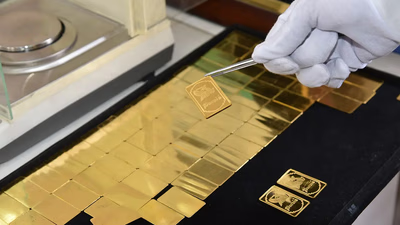
Factors influencing gold prices include global economic conditions, interest rates, inflation, currency fluctuations, and geopolitical tensions. Historical data analysis reveals patterns that can inform future price movements, although past performance is not a guarantee. Technical analysis of price charts and indicators aids in identifying trends and potential targets. Broader macroeconomic factors such as economic growth rates and trade dynamics also play a role in shaping investor sentiment towards gold as a safe-haven asset. Recent trends show a positive outlook for gold, with analysts predicting prices may reach $1,800 soon but face challenges ahead. Research firm Murenbeeld & Co forecasts average prices of $1,806 in Q2 2021 and $1,900 by Q1 2022. However, uncertainties surrounding the economic recovery and inflation persist. The rise of Bitcoin poses competition for gold"s market value, with analysts noting a 2.
5% reduction in gold"s value due to Bitcoin"s increase. Understanding supply-demand dynamics is crucial; factors like production levels and investment demand significantly impact pricing. Staying informed through expert opinions and market forecasts is essential for navigating the complexities of gold pricing. "
-
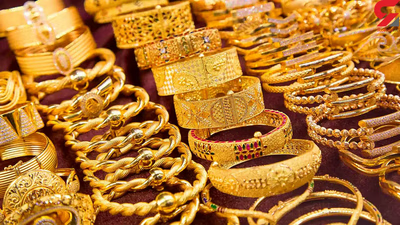
Jewelry trading in West Asia offers various avenues, including established jewelry stores, traditional gold souks, and private sales through personal networks. Reputable stores provide a wide selection of high-quality pieces and knowledgeable staff to assist buyers. Gold souks, like Dubai"s famous Gold Souk, offer extensive options but require caution to ensure authenticity. Networking plays a crucial role in accessing exclusive pieces through private sales. Trade shows and exhibitions are valuable for discovering new designers and establishing industry connections. Buyers should prioritize reputable sources to avoid issues with gemstone quality and pricing discrepancies. The sale of gold differs from jewelry, with specific pricing structures based on daily rates and seller profits. E-commerce platforms have gained popularity for jewelry purchases, but buyers must research sellers thoroughly to ensure secure transactions.
Auction houses also present opportunities for acquiring unique pieces but require knowledge of the auction process. "
-
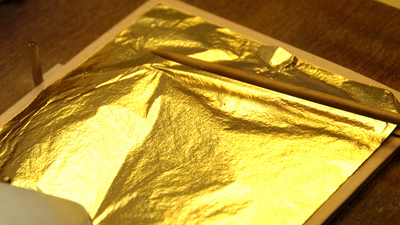
West Asia has a rich history of gold discovery and trade, dating back to ancient civilizations like Mesopotamia, where artifacts from around 3000 BCE were found. Ancient Egypt also played a significant role, mining gold from the Nubian and Eastern Deserts for jewelry and trade. The Persian Empire further contributed to gold accumulation, with kings using it to finance military campaigns. The rise of the Arab Caliphates in the 7th century CE established key trade routes that facilitated gold exchange across Asia, Africa, and Europe, with Baghdad emerging as a center for gold craftsmanship. Gold"s allure continued through history, being used in various important objects and maintaining its status as a precious metal. In modern times, China has become the largest producer of gold, while countries like Saudi Arabia and the UAE have significant reserves. Dubai has evolved into a major trading hub for gold, showcasing its ongoing importance in global markets. "
-
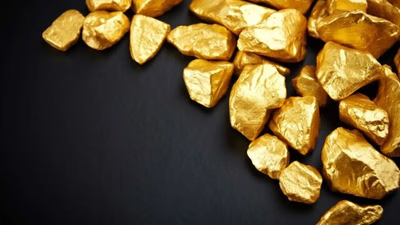
Gold has been a valuable medium of exchange for over 6,000 years due to its rarity and durability. While its use as currency has diminished, gold remains integral in various industries, particularly electronics. It is a key component in devices like smartphones and computers, where it serves as a reliable conductor that resists corrosion. The demand for gold in electronics is significant, with billions of mobile phones produced annually, each containing small amounts of gold. Additionally, gold"s applications extend to dentistry and medicine, where it is used for fillings and certain treatments. In aerospace, gold"s unique properties make it essential for spacecraft components, reflecting infrared radiation and acting as a lubricant in vacuum conditions. The increasing need for advanced materials suggests that the demand for gold will continue to rise, further solidifying its value in the global market.
-
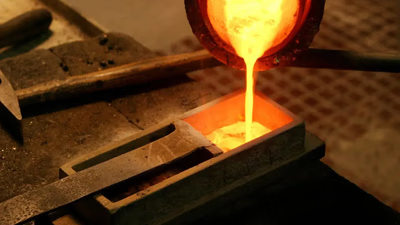
Identifying second-hand gold jewelry involves examining its physical condition and markings. Look for signs of wear such as scratches, dents, or tarnish, particularly on areas prone to damage like clasps and ring backs. A patina may indicate age, but some prefer this aesthetic. Repairs can also signal pre-ownership; check for solder marks or resized bands. Hallmarks provide insight into purity and age, but be cautious of forgeries. The gold"s carat indicates its purity level, with 24 carat being pure gold, while lower carats contain other metals for durability. Different regions have varying standards for gold grades; for instance, 18 carat is common in Iran while Arab countries often use between 20 and 24 carats. New jewelry typically comes with packaging and documentation that may be absent in second-hand pieces.
Pricing can also be a clue; second-hand items are generally less expensive than new ones. Always consider the source when purchasing to ensure authenticity. "
-

West Asia has long been a pivotal center for gold trading, leveraging its strategic location to facilitate trade between Europe, Asia, and Africa. Historical empires like the Persian Empire and the Ottoman Empire significantly influenced the development of this market. Gold is culturally significant in West Asian societies, symbolizing wealth and status, often exchanged during weddings and celebrations. Major trading hubs include Dubai, Istanbul, and Manama, which attract global buyers and sellers. The region boasts a robust financial infrastructure supporting gold investments through bullion banks and gold ETFs. Middle Eastern central banks maintain substantial gold reserves to diversify their holdings and stabilize currencies. Countries like the UAE, Saudi Arabia, and Turkey are notable for their significant reserves. Gold"s unique properties—its resistance to corrosion and tarnishing—make it a preferred choice for jewelry, particularly wedding bands.
The demand for gold surges during festive seasons such as Eid and Diwali, reflecting its status as a store of value. Additionally, West Asia is celebrated for its exquisite gold craftsmanship, with skilled artisans creating intricate designs that enhance the allure of gold jewelry. "








